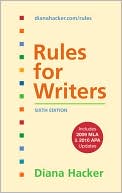Category Books
- Fiction Books & Literature
- Graphic Novels
- Horror
- Mystery & Crime
- Poetry
- Romance Books
- Science Fiction & Fantasy
- Thrillers
- Westerns
- Ages 0-2
- Ages 3-5
- Ages 6-8
- Ages 9-12
- Teens
- Children's Books
- African Americans
- Antiques & Collectibles
- Art, Architecture & Photography
- Bibles & Bible Studies
- Biography
- Business Books
- Christianity
- Computer Books & Technology Books
- Cookbooks, Food & Wine
- Crafts & Hobbies Books
- Education & Teaching
- Engineering
- Entertainment
- Foreign Languages
- Game Books
- Gay & Lesbian
- Health Books, Diet & Fitness Books
- History
- Home & Garden
- Humor Books
- Judaism & Judaica
- Law
- Medical Books
- New Age & Spirituality
- Nonfiction
- Parenting & Family
- Pets
- Philosophy
- Political Books & Current Events Books
- Psychology & Psychotherapy
- Reference
- Religion Books
- Science & Nature
- Self Improvement
- Sex & Relationships
- Social Sciences
- Sports & Adventure
- Study Guides & Test Prep
- Travel
- True Crime
- Weddings
- Women's Studies
Rules for Writers with 2009 MLA and 2010 APA Updates » (6th Edition)

Authors: Diana Hacker
ISBN-13: 9780312664817, ISBN-10: 0312664818
Format: Other Format
Publisher: Bedford/St. Martin's
Date Published: June 2010
Edition: 6th Edition
Author Biography: Diana Hacker
DIANA HACKER personally class-tested her handbooks with nearly four thousand students over 35 years at Prince George’s Community College in Maryland, where she was a member of the English faculty. Hacker handbooks, built on innovation and on a keen understanding of the challenges facing student writers, are the most widely adopted in America. Other Hacker handbooks, all published by Bedford/St. Martin’s, include The Bedford Handbook, Seventh Edition (2006); A Writer’s Reference, Sixth Edition (2007); and A Pocket Style Manual, Fifth Edition (2008).
ABOUT THE CONTRIBUTING AUTHORS
NANCY SOMMERS, who has taught composition and directed composition programs for thirty years, now teaches writing in the Graduate School of Education at Harvard University. A two-time Braddock Award winner, Sommers is well-known for her research and publications on student writing. Her recent work involves a longitudinal study of undergraduate writing. Nancy Sommers is co-author of Fields of Reading, Ninth Edition (2010) for Bedford/St. Martin’s.
TOM JEHN teaches composition and directs the Writing Across the Disciplines program at Harvard University. A recipient of numerous teaching awards both at Harvard and at the University of Virginia, he also leads professional development seminars on writing instruction for public high school teachers.
JANE ROSENZWEIG teaches composition and directs the writing center at Harvard University. She has also taught writing at Yale University and the University of Iowa.
MARCY CARBAJAL VAN HORN, Assistant Professor of English and ESL at Santa Fe Community College (FL), teaches composition to native and nonnative speakers of English and teaches the Advanced ESL Writing course.
Book Synopsis
Click here to find out more about the 2009 MLA Updates and the 2010 APA Updates.
Rules for Writers succeeds because it has always been grounded in classroom experience. By looking at her own students’ needs, Diana Hacker created an affordable and practical classroom tool that doubles as a quick reference. Developed with the help of instructors from two- and four-year schools, the sixth edition gives students quick access to the information they need to solve writing problems in any college course.
In the Hacker tradition, the new contributing authors — Nancy Sommers, Tom Jehn, Jane Rosenzweig, and Marcy Carbajal Van Horn — have crafted solutions for the writing problems of today’s college students. Together they give us a new edition that provides more help with academic writing and research and one that works better for a wider range of multilingual students. Flexible content options — in print and online — allow students to get more than they pay for.
Table of Contents
Preface for Instructors
How to Use This Book
THE WRITING PROCESS
1. Generate ideas and sketch a plan.
2. Rough out an initial draft.
3. Make global revisions; then revise sentences.
4. Build effective paragraphs.
DOCUMENT DESIGN
5. Become familiar with the principles of document design.
6. Use standard academic formats.
7. Use standard business formats.
CLARITY
8. Prefer active verbs.
9. Balance parallel ideas.
10. Add needed words.
11. Untangle mixed constructions.
12. Repair misplaced and dangling modifiers.
13. Eliminate distracting shifts.
14. Emphasize key ideas.
15. Provide some variety.
16. Tighten wordy sentences.
17. Choose appropriate language.
18. Find the exact words.
GRAMMAR
19. Repair sentence fragments.
20. Revise run-on sentences.
21. Make subjects and verbs agree.
22. Make pronouns and antecedents agree.
23. Make pronoun references clear.
24. Distinguish between pronouns such as I and me.
25. Distinguish between who and whom.
26. Choose adjectives and adverbs with care.
27. Choose appropriate verb forms, tenses, and moods in standard English.
ESL CHALLENGES
28. Verbs
29. Articles and types of nouns
30. Sentence structure
31. Prepositions and idiomatic expressions
PUNCTUATION
32. The comma
33. Unnecessary commas
34. The semicolon
35. The colon
36. The apostrophe
37. Quotation marks
38. End punctuation
39. Other punctuation marks: the dash, parentheses, brackets, the ellipsis mark, the slash
MECHANICS
40. Abbreviations
41. Numbers
42. Italics (underlining)
43. Spelling
44. The hyphen
45. Capital letters
ACADEMIC WRITING
46. Writing about texts
47. Constructing reasonable arguments
48. Evaluating arguments
RESEARCH
49. Conducting research
50. Evaluating sources
51. Managing information; avoiding plagiarism
WRITING MLA PAPERS
52. Supporting a thesis
53. Avoiding plagiarism
54. Integrating sources
55. Documenting sources
56. Manuscript format; sample paper
WRITING APA PAPERS
57. Supporting a thesis
58. Avoiding plagiarism
59. Integrating sources
60. Documenting sources
61. Manuscript format; sample paper
THE BASICS
62. Parts of speech
63. Sentence patterns
64. Subordinate word groups
65. Sentence types
Glossary of Usage
Answers to Tutorials and Lettered Exercises
Index
ESL Menu
Subjects

